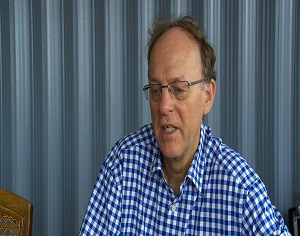By Theckla Gunga – EMTV Port Moresby
The Bank of Papua New Guinea’s (BPNG) Financial Inclusion Program can be a significant indictor of where the government should invest in.
Institute of National Affairs Director, Paul Barker, said the program reveals the need for more financial awareness in rural areas to stimulate economic growth.
“According to some research conducted by United Nations and INA reveal that the access to financial services and information for the people that are in rural areas is very low,” Barker said.
Recent BPNG studies show that half of the 80 per cent of Papua New Guineans who live in rural areas are financially illiterate and have never opened a bank account.
This indicates that many do not understand the importance of practicing a savings culture or how to benefit from financial services.
The financial education program, which commenced in 2013, reveals the high illiteracy rate and the little understanding people have on the economic activities happening in their communities.
The limited opportunities available for people in rural areas to access financial services indicated the absence of financial institutes in those areas.
Though many people would like to save for a rainy day, it becomes expensive for them to travel into towns to either deposit or withdraw money.
Barker said because PNG does not have allowances given to the aged or sick, those in rural areas depend not on government but rather on their families for money to get medical help.
“In rural areas, the people mostly depend on their families when they are sick or need money,” Barker said.
But while specific remarks were made on access to financial services in remote areas, social indicators like the high maternal and infant mortality rates, the drop in quality of education or law and order services in remote areas are also priority areas the government can invest in.


